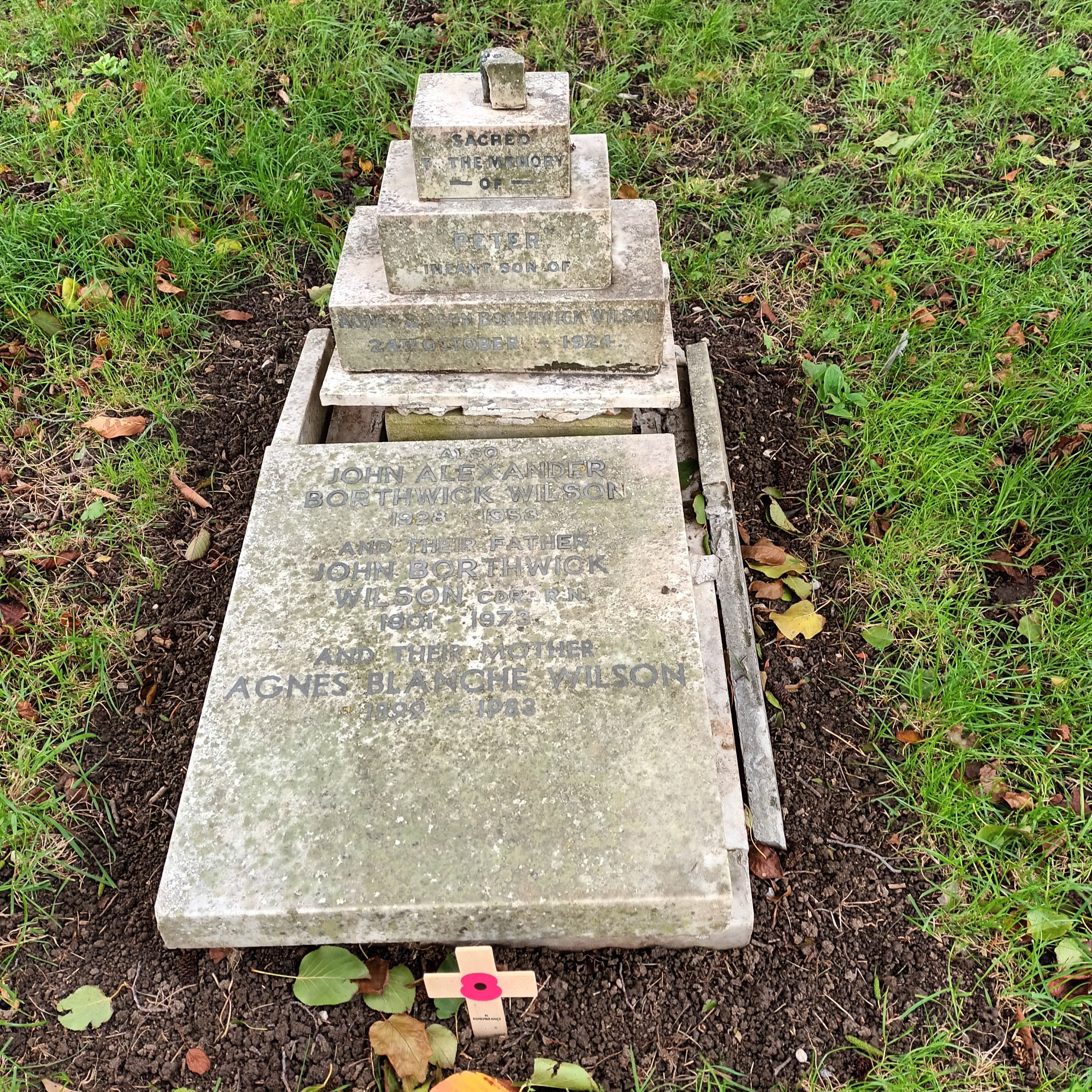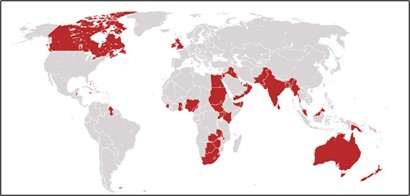|
b. 27 Jan 1895 - Alton, Hants
One of the best-known racing and pioneering pilots of the 30s.
His father, John, was a farm bailiff at Basing Farm, Froxfield, nr Petersfield, Hants. After working briefly as a bank clerk, Tommy joined the Royal Navy in 1914 and then transferred to the R.F.C. in June 1917.
"He was shot down three times, but escaped each time. He was awarded the DFC for his work with the fighter squadron in which Billy Bishop, VC, served. "
m. 1925 Margaret Elizabeth [Ashford], [divorced 1938]
Retired from the RAF in 1926 with the rank of Flight-Lieutenant.
In December 1931, he made an unsuccessful attempt on the UK-Cape record, and then flew back "by easy stages".
From Oct 1933, Manager and Chief Instructor at Sywell.
"TOMMY ROSE is gone from Sywell, but not forgotten. As sales manager for Messrs. Phillips and Powis, the Reading aircraft manufacturers, he spends quite a lot of time flying round the country. Last week his photograph was 'splashed' in all the national daily papers, greeting Mr. H. L. Brook, the Yorkshireman airman, on his arrival at Croydon after breaking the Australia-England record previously held by Jim Mollison. There was no mistaking Tommy’s famous sports jacket and boyish grin!
Mr. Rose, the way, left a last impression at Sywell. Shortly before leaving, when the new gate was being erected in front of the clubhouse, he carefully placed his foot in the wet cement and printed beside it 'Tom Rose' with a trowel. The cement hardened, and the 'Rose' mark is there for posterity to reverence! Hundreds of feet have since trod the hallowed spot." - Northampton Mercury, 12 April 1935
Competed in the King's Cup six times, winning it in 1935 ...
![Kings Cup 1938 Tommy Rose [0122-0170]](/images/gallery/air%20races/preview/333s333/Kings%20Cup%201938%20Tommy%20Rose%20%5B0122-0170%5D.jpg)
© The Royal Aero Club [0122-0170]
... and coming second in 1934 and 1936.
[The 1935 King's Cup itself recently sold at auction for £3,900:
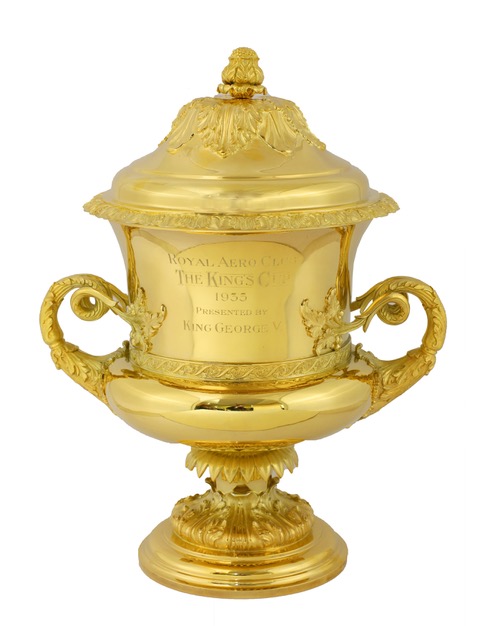
Photo kindly supplied by Sarah Chambers, reproduced by kind permission of Sworders Fine Art Auctioneers.]
He became a national hero in March 1936 after his flight to Cape Town and back; "he can now claim to have made the fastest time for the trip both out and home. His new record is 6 days 6 hr. 57 min. (he got to the Cape in 89 hr. 37 min.), which beats F/O David Llewellyn's time—the previous best—by 5 hr. 6 min."
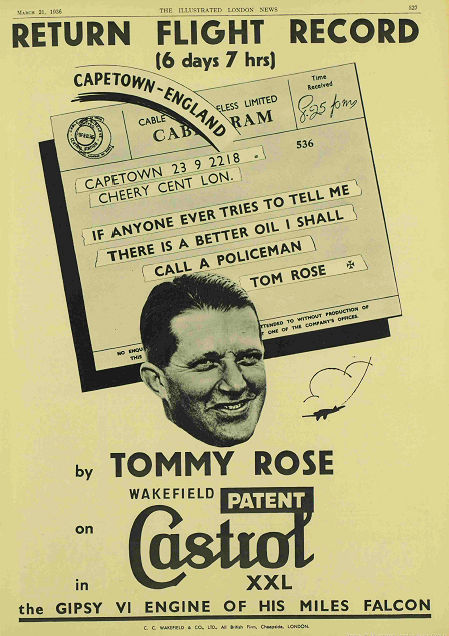
After the flight to the Cape, he had tea with the Prime Minister, General Hcrtzog, and also saw General Smuts. However, he was charmingly modest about his achievements:
"TOMMY ROSE ON LONG FLIGHTS
SAYS RECORD ATTEMPTS ARE 'LARGELY BUNKUM'
This flight business is bunkum! The authority for that picturesquely phrased piece of information is Flight- Lieutenant Tommy Rose, and he should know, for he hit the headlines in all the national newspapers when he smashed all records for the flight from London to the Cape. In a talk to the Round Table at Stewart's Cafe on Monday he summed up the whole business in these few words: 'All long distance flights are largely bunkum. The national newspapers, if there is no other news at the time, whip up an interest in these flights, and if one gets there safely and breaks a record everyone thinks: 'By gad, here's one of the twelve apostles come to life!’ (Laughter.)
'But I assure you there is nothing in it. The only things you have got do to be successful are to get the best machine you can find and then practise sitting still for a long, long time . . . . '
Reflections wise and witty on flying in general and his own flight in particular made Flight-Lieutenant Rose's talk one of the most delightful and amusing to which Tablers have listened to for a long time. His racy manner produced a laugh at almost every sentence, and a more unassuming world record breaker than this genial young man would be difficult to find.
There was one richly humorous story which is worth repeating. 'When I eventually got to the Cape I had to broadcast to the Union,' he said. 'The announcer seemed very nervous and this was what he said: ’Who do you think I have here the studio? None other than Mr Tom Mollison, who flew from London to the Cape in 37 days 18 hours.’ I met General Hertzog few days later and he said: 'if it takes all that time to fly, don't you think you had better come by boat next time?’
Flight-Lieutenant Rose answered a number of questions and urged the need for municipalities laying down landing grounds for aircraft. Members of the Rotary Club and of other Round Tables were present, as guests, to hear the airman’s talk. " - Eastbourne Gazette, 6 May 1936
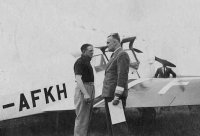
© The Royal Aero Club [0129-0039]
Before the 1936 Schlesinger Race to Johannesburg, he predicted: "It is my opinion that the pilot of the aeroplane which gets there in under forty-eight hours will deserve just about the biggest bunch of bananas ever found.
Having got lost myself many times down this route when flying without wireless, I fully expect to do so again, and the pilot in this race who can honestly say at the end that he was sure of his position all the time will either be very lucky, very clever, or have a queer idea of honesty."
From 1939 to 1946, Chief Test Pilot for Miles Aircraft, living in Sonning, Berks; in July 1943 he was reported to have "improved considerably and to be well on the way to recovery, after he contracted a chill when captaining his works cricket team. "
Won the Manx Air Derby in 1947, still flying a Miles Hawk; three circuits of the island at 181 mph.
d. 20 Jun 1968 - Alderney, Channel Islands.
|
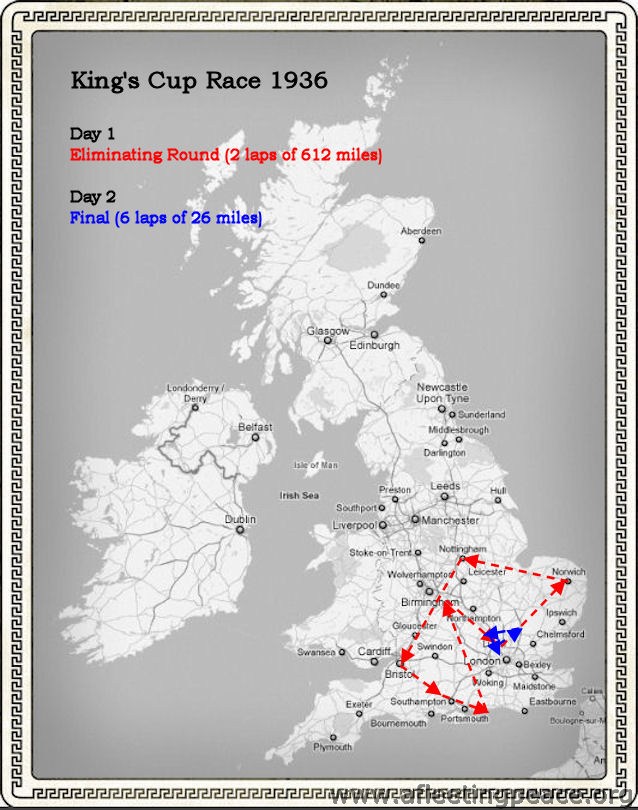
 Click here to see the Newsreel!
Click here to see the Newsreel!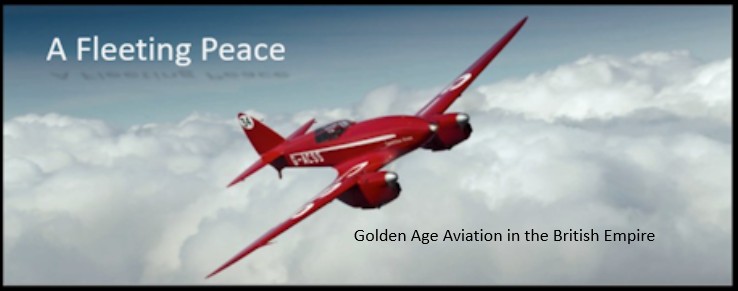
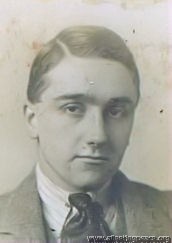 photo: 1921, aged 20
photo: 1921, aged 20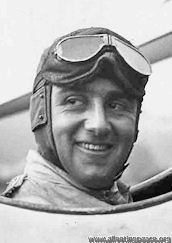 photo: 1930, aged 29
photo: 1930, aged 29
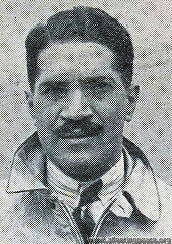 in 1936
in 1936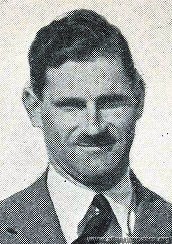 in 1936, aged 28
in 1936, aged 28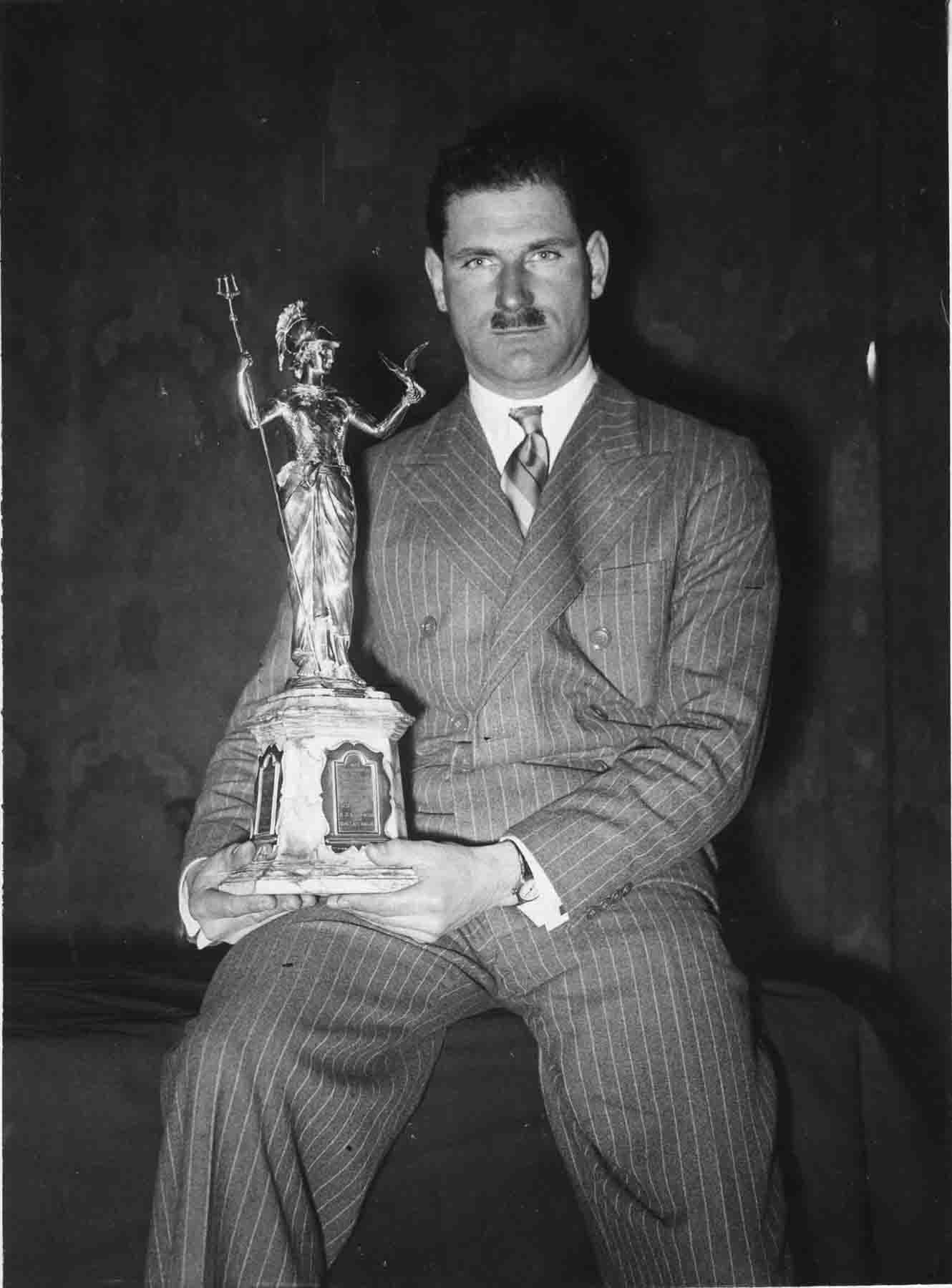 With the Brittania Trophy
With the Brittania Trophy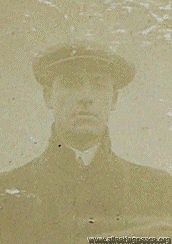 1911, aged 29
1911, aged 29 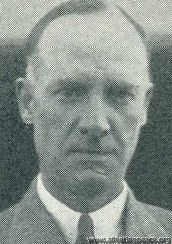 1936, aged 54
1936, aged 54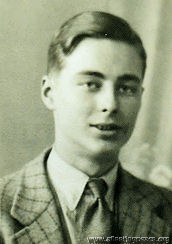 1932, aged 17
1932, aged 17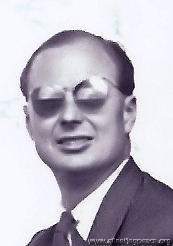 c.1955, aged c.40
c.1955, aged c.40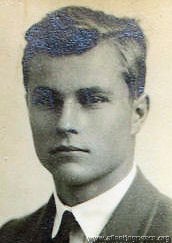 1931, aged 25
1931, aged 25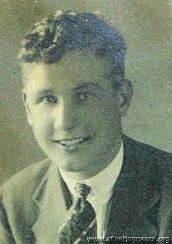 1932, aged 20
1932, aged 20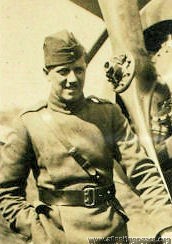 1917, when a 2nd Lieut in the RFC, aged 20
1917, when a 2nd Lieut in the RFC, aged 20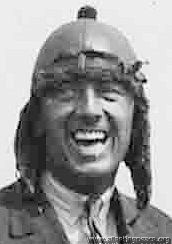 1928, aged 31
1928, aged 31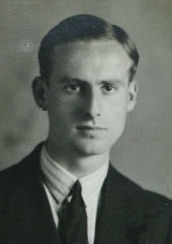 1933, aged 24
1933, aged 24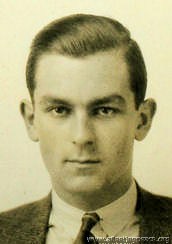
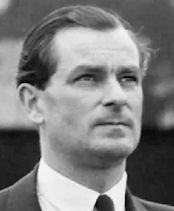
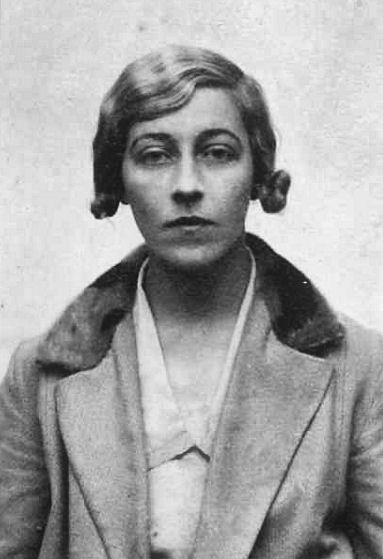 1929
1929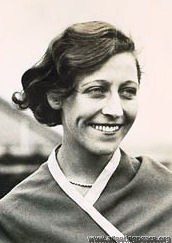
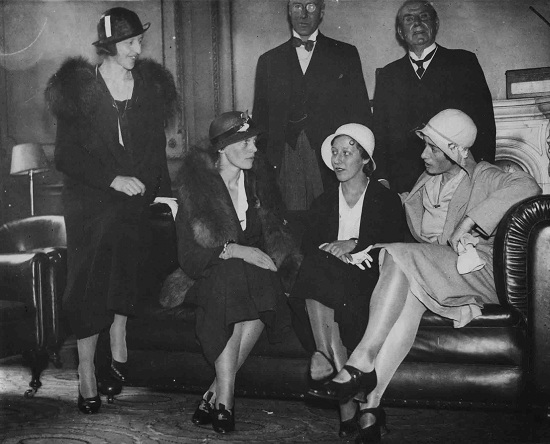
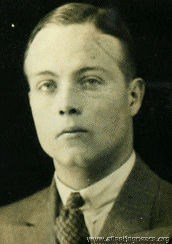 1933, aged 20
1933, aged 20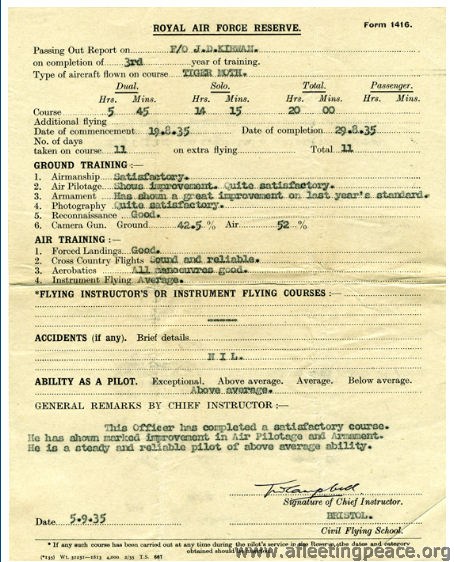
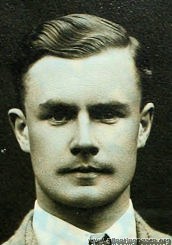 1930, aged 24
1930, aged 24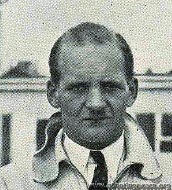
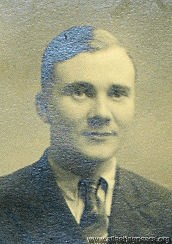
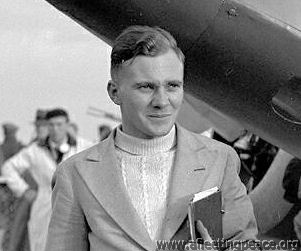
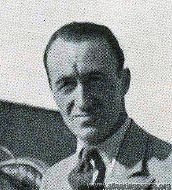 1936, aged 36
1936, aged 36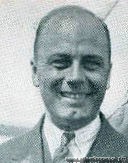 1930, aged 32
1930, aged 32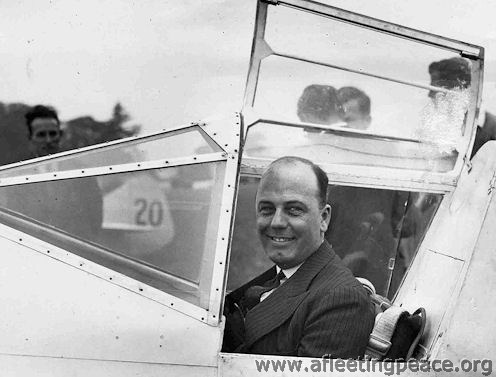 King's Cup 1934; sans trilby, for once
King's Cup 1934; sans trilby, for once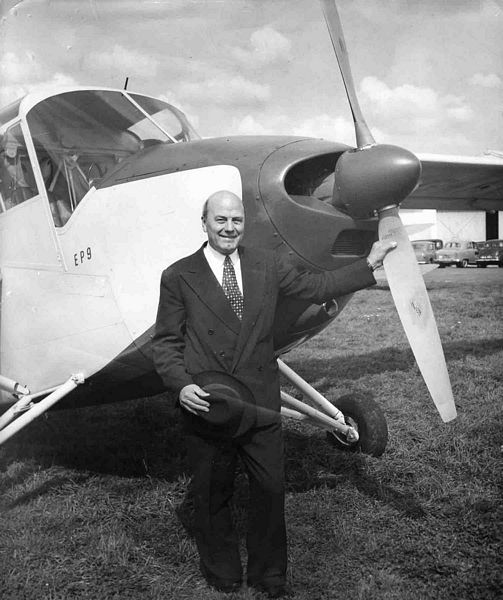 In 1956, with the EP.9 'Prospector'. And trilby.
In 1956, with the EP.9 'Prospector'. And trilby.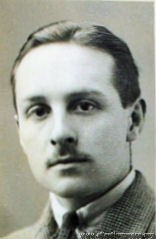 1933, when 2nd Lieut in the Grenadier Guards, aged 20.
1933, when 2nd Lieut in the Grenadier Guards, aged 20..jpg) in 1936
in 1936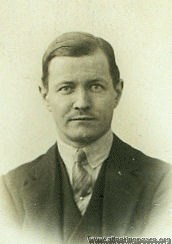
![Air Bathing Party Skegness PQ Reiss, L Everard etc [0312-0136]](/images/gallery/bread%20and%20circuses/preview/333s333/Air%20Bathing%20Party%20Skegness%20PQ%20Reiss%2C%20L%20Everard%20etc%20%5B0312-0136%5D.jpg) (r), Air Bathing Party, Skegness
(r), Air Bathing Party, Skegness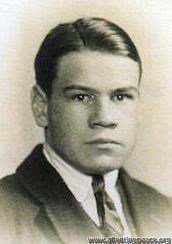
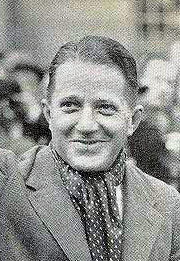 1936
1936![Kings Cup 1938 Tommy Rose [0122-0170]](/images/gallery/air%20races/preview/333s333/Kings%20Cup%201938%20Tommy%20Rose%20%5B0122-0170%5D.jpg)



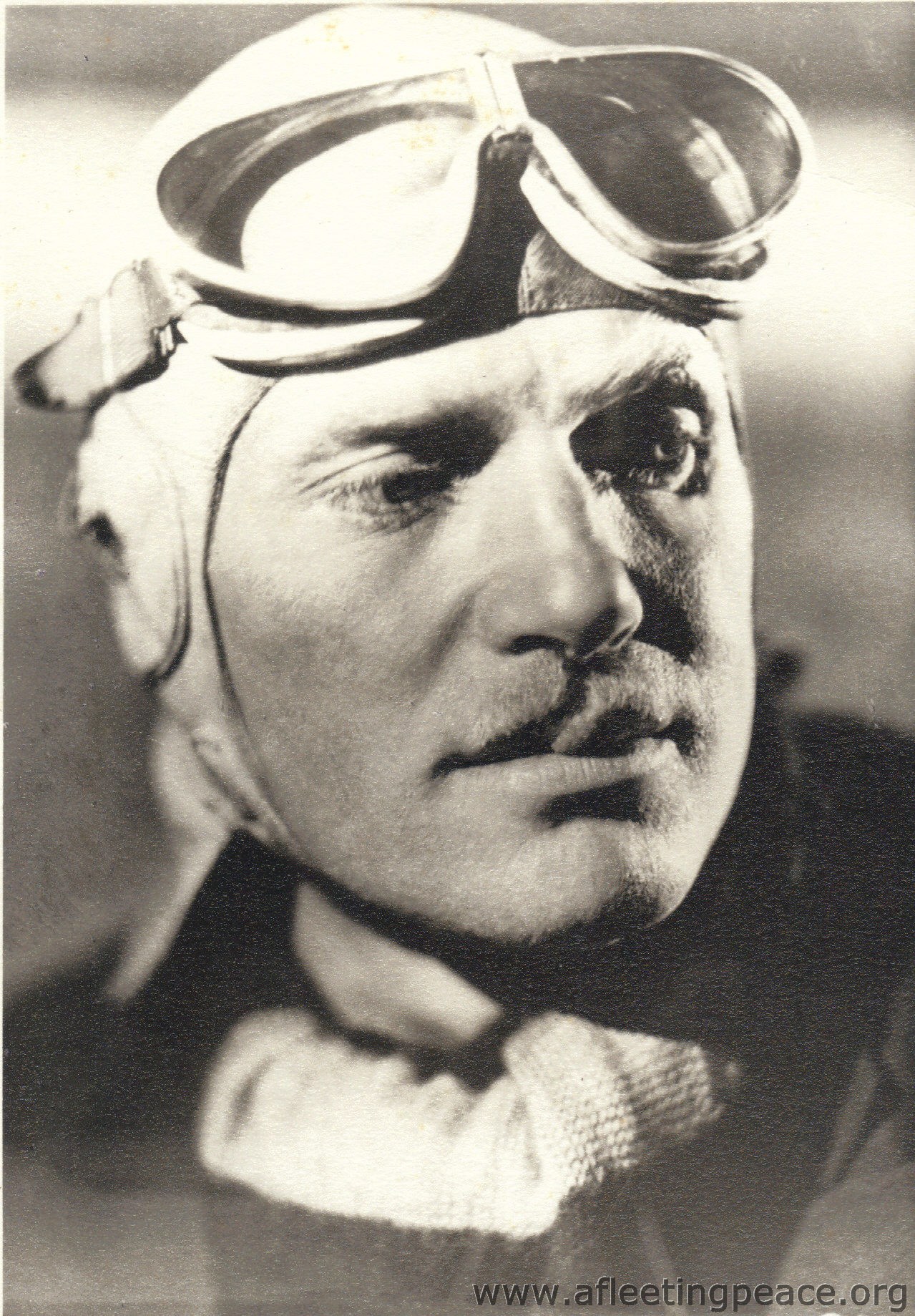
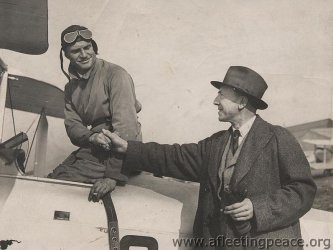 with his father Charles
with his father Charles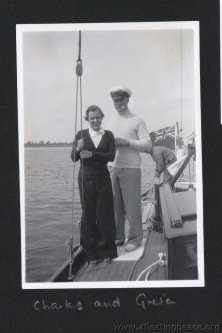
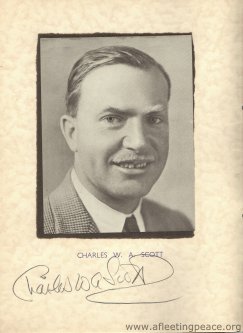
.jpg)

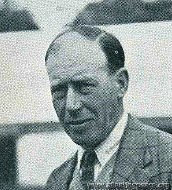 1936
1936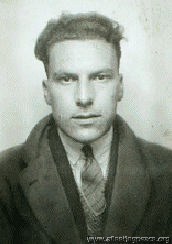 1932, aged 23
1932, aged 23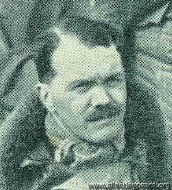 1936, aged 28
1936, aged 28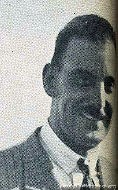 1936
1936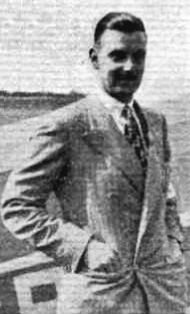 1935 - both 'Flight'
1935 - both 'Flight'
 With thanks to Gary Wright
With thanks to Gary Wright